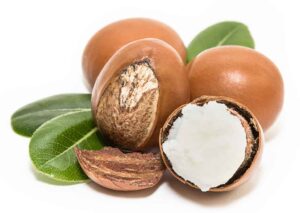
5 FACTS TO CONSIDER ABOUT IMPORTING HIGH QUALITY SHEA BUTTER IN NIGERIA AND AFRICA
A few days ago (January 9th 2025) we talked about importing Shea Butter from Nigeria and Africa.
As we already know, shea butter is an incredibly versatile and valuable product, widely used in skincare, cosmetics, and even food industries. It has a rich history in West Africa, where it is sourced primarily from the Shea tree (Vitellaria paradoxa). In Nigeria and other parts of Africa, shea butter is not only a cultural treasure but also a growing export commodity. This guide will explore how to import high-quality shea butter from Nigeria and other African countries, the best practices for sourcing, and the benefits of using this natural product.
Today, we want to consider 5 facts that will help us better appreciate Shea butter as well as a few factors to consider before importation from Nigeria and Africa.
1. Understanding Shea Butter and Its Uses:
Shea butter is a fat extracted from the nuts of the Shea tree. It is highly prized for its moisturizing, anti-inflammatory, and healing properties.
– Common Uses of shea butter include;
– Cosmetics: Used in lotions, soaps, and hair products.
– Food: Edible shea butter is used in cooking and as a substitute for fats like cocoa butter.
– Health & Wellness: Often used for skin conditions like eczema, scars, and burns.
2. Why Shea Butter from Nigeria & Africa is So Popular:
– Rich Quality: Shea butter from Africa, particularly Nigeria, is known for its high quality due to the traditional harvesting and processing methods. The raw, unrefined shea butter produced in Nigeria has a rich, creamy texture and contains natural vitamins and nutrients.
– Abundant Supply: West Africa, especially Nigeria, is one of the largest producers of shea butter, making it a key player in the global market.
– Sustainability: Shea butter production in Africa supports local communities, creating jobs for women and rural populations, which enhances its appeal for ethical sourcing.

3. How to Import High-Quality Shea Butter from Nigeria and Africa:
A. Research and Select Reliable Suppliers:
– Look for suppliers or cooperatives that focus on organic, unrefined shea butter. The best quality shea butter is typically unrefined and processed using traditional methods, which preserve its nutrients.
– Consider working with certified suppliers who have experience exporting shea butter internationally.
Thankfully, Renamy Global Resources Ltd is one message away from helping you with all your shea butter needs.
B. Quality Standards to Look for in Shea Butter:
– Appearance: High-quality shea butter should have a creamy, ivory color (or slightly yellowish), and it should not be too hard or too soft.
– Smell: Pure, unrefined shea butter has a mild, nutty scent. If it has a rancid or strong odor, it may be low quality or improperly processed.
– Packaging: Ensure the shea butter is packaged in airtight, sealed containers to avoid contamination and preserve freshness.
C. Import Documentation and Regulations:
– Customs & Tariffs: Understand the import duties and tariffs involved when importing shea butter into your country. Ensure your supplier complies with all relevant export regulations in Africa and import requirements in your country.
– Quality Certifications: Some countries require certifications like organic certification or Fair Trade certification to ensure that the shea butter meets quality and ethical standards.
D. Shipping & Logistics:
– Shea butter can be shipped in bulk containers, but you should choose a reliable logistics partner with experience in handling natural products.
– Choose a shipping method that preserves the quality of the product, such as temperature-controlled shipping if necessary.
4. Challenges in Importing Shea Butter:
– Quality Control: One of the challenges in importing shea butter is ensuring consistency in quality from batch to batch. It’s crucial to establish a relationship with trustworthy suppliers who can provide regular, high-quality shipments.
– Supply Chain Issues: Delays or interruptions in the supply chain in West Africa can affect the timely arrival of shipments. Having a backup supplier or sourcing from a network of cooperatives can mitigate this risk.
– Export Documentation: Shea butter importation can sometimes be delayed by paperwork or incorrect customs documentation, so it’s important to be familiar with the import process.
5. Sustainability and Ethical Sourcing of Shea Butter:
– Supporting Local Communities: Shea butter production in Africa is often linked with local women’s cooperatives. By importing directly from these cooperatives, you can support ethical trade practices and contribute to economic empowerment in rural African communities.
– Fair Trade and Organic Certifications: Look for suppliers who are committed to sustainability and fair trade. Organic shea butter is produced without pesticides or harmful chemicals, ensuring a product that is not only better for your skin but also better for the environment.

Where Renamy Global Resources Ltd Can Assist You
Renamy Global Resources Ltd can assist with the importation of high-quality shea butter by providing end-to-end solutions. We specialize in:
1. Sourcing: We connect you with trusted, certified suppliers of premium shea butter from Nigeria and across Africa.
2. Quality Assurance: We ensure that the shea butter meets international standards, offering unrefined, organic options.
3. Logistics: We handle shipping, customs clearance, and all import documentation, ensuring a smooth and timely delivery.
Let Renamy Global Resources Ltd streamline your importation process, providing you with high-quality shea butter while ensuring ethical sourcing and efficient logistics.
Conclusion:
In conclusion, why should you import shea butter from Nigeria and Africa? Importing high-quality shea butter from Nigeria and other African countries offers businesses and individuals access to a premium, natural product with a range of benefits. By understanding the process of importing, ensuring product quality, and selecting the right suppliers, you can successfully integrate shea butter into your product line or personal care routine.
Moreover there is currently a growing demand for this. As global demand for natural, organic products continues to rise, the opportunity to source high-quality shea butter from Africa presents an exciting business prospect with ethical and sustainable benefits.
